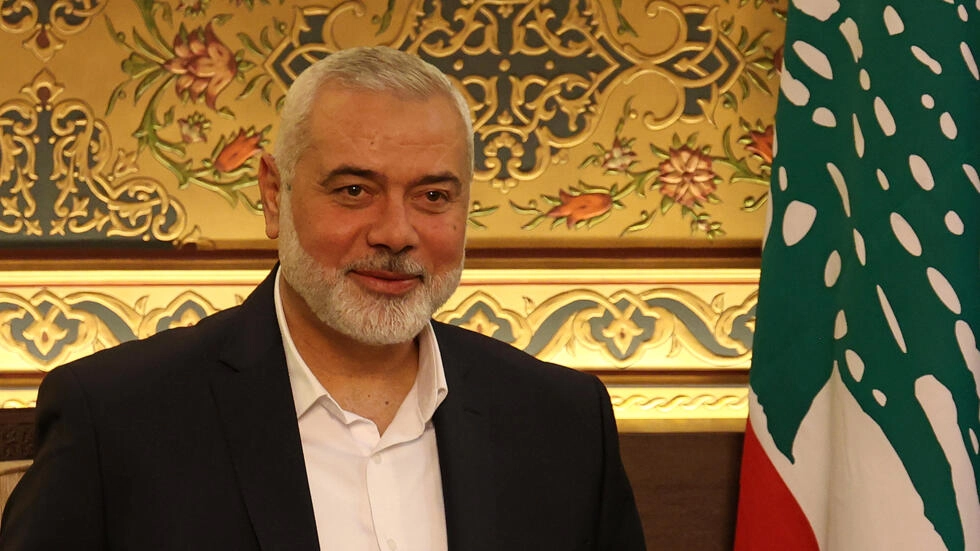An aura of mystery surrounds the slightly-built, Hebrew speaker Sinwar, who knows Israel well, having spent 23 years in Israeli jails before his release in 2011 in a prisoner exchange involving French-Israeli soldier Gilad Shalit who was held captive by Hamas.
Like Deif he also is on the US list of wanted “international terrorists”.
On Thursday, Israeli army spokesman Richard Hecht told reporters the offensive on Gaza targets senior Hamas leaders including Sinwar.
Your revolution”
Hamas’ terrorist attack on Israel seems to have buried the last prospect of a peaceful solution for a coexistence of Israelis and Palestinians. “Prime Minister Netanyahu has left us to believe that the Palestinian question is already under control,” historian Tom Segev outlines a fatal error. Hamas, on the other hand, wants to win a propaganda war and show that the question of the base among the Palestinians is understood. “Getting your own revolution back in your hands,” this demand is also aimed at the Arab world and against the leading elites there.
If you want to look from the tragic present into the future of the relationship between Israel and the Palestinians, you have to calculate it with the social situation of Israel’s neighbors. Not infrequently, the mood between political elites and broad sections of the population has decoupled there. Hamas sent the message to “get its own revolution back in its own hands” to the latter. And the further course of a clarification of the conflict with Israeli counterattacks could further nourish exactly this mood. In any case, terror has mobilized both sides in the conflict worldwide: supporters of Israel can be experienced on the streets worldwide as well as those who are committed to the Palestinian cause. The trenches are deepened, there are few common peace signals these days.
Much has already been written about the failure of intelligence knowledge on the Israeli side in recent days and hours. The attack of Hamas is the Israeli 9/11 – this is reflected in many comments in shocked Israel in these days and hours. The historian Tom Segev also described this mood to himself on Monday in the ZIB2. “As someone who has dedicated his life to history since 1948, this attack is a cut after I no longer know how to proceed afterwards,” says Segev. Aftermath: “I don’t have the idea.”
Emergency government set up in Israel
After the unprecedented attack by the radical Islamic Hamas, an emergency government was set up last night, including the opposition in Israel. The deputies voted for the emergency government in a special session with 66 to four votes after Prime Minister Benjamin Netanyahu offered the opposition cooperation in times of war.
Netanyahu’s rival Benni Ganz and four members of his party were sworn in as ministers with no special division of business. Opposition leader Jair Lapid had previously rejected participation in the emergency government.
Lapid rejects participation
Lapid accused the government coalition of Netanyahu of failure in connection with the large-scale attack by the radical Islamic Palestinian organization. “Saturday’s failure is unforgivable,” Lapid said in a television address.
He is in favor of a “government of national unity” and does not want to join a government with “extremists,” said Lapid, referring to Itamar Ben Gvir, the minister of public security of the right-wing extremist party Jewish Power. Lapid, however, should be kept free in the new cabinet, in which Netanyahu’s coalition partners of the extreme right and ultra-Orthodox continue to be present.
Two more Austrians dead after Hamas attack
Two other Austrian-Israeli dual citizens are dead after the Islamist Hamas attack on Israel. They are “victims of the brutal terror of Hamas in Israel,” the Ministry of Foreign Affairs announced last night. “Our sincere condolences and sympathy go to the families and friends during this difficult time,” the Ministry of Foreign Affairs continued.
The two dead are not the two still missing. There would still be no reliable information on the whereabouts of the two missing dual citizens, according to the ministry. Further details were not disclosed. The death of another dual citizen had already been confirmed the day before. According to the current status, three Austrians have been killed by Hamas.
Who are the leaders of Hamas
Jerusalem (AFP) – The Palestinian Islamist group Hamas, which Israel has vowed to destroy after it launched a shock attack on Israel Saturday that killed more than 1,200 people, has ruled the Gaza Strip since 2007.
Here is what we know about the top leaders of the militant organisation which Israeli Prime Minister Benjamin Netanyahu has likened to the Islamic State group.
– Ismail Haniyeh, the politician:
The 60-year-old Haniyeh was elected head of the Hamas political bureau in 2017 to succeed Khaled Meshaal, but was already a known figure in 2006 when he became Palestinian prime minister following an upset victory by Hamas in that year’s parliamentary election.
But ties with the Fatah movement of Palestinian president Mahmud Abbas were short-lived and in 2007, Hamas took full control of the Gaza Strip after violently ousting the president’s loyalists.
Considered a pragmatist, Haniyeh lives in voluntary exile, splitting his time between Turkey and Qatar.
He has long campaigned for a reconciliation between the armed resistance against Israel and a political stance within Hamas, which is blacklisted as a terrorist group by the European Union and the United States.
Haniyeh is said to maintain good relations with the heads of the various Palestinian factions, including rival ones.
In his youth, the Hamas leader, who is known for his calm, was a member of the student branch of the Muslim Brotherhood at the Islamic University of Gaza.
He joined Hamas in 1987 when the militant group was founded as the first Palestinian intifada, or uprising, broke out against Israeli occupation, lasting until 1993.
During that time Haniyeh was imprisoned by Israel several times, and then expelled to south Lebanon for six months.
In footage broadcast by Hamas-linked media on Saturday, Haniyeh is seen watching images on television of the unfolding Hamas attack on Israel, before joining other Hamas leaders in a prayer to “thank Allah for this victory”.
– Mohammed Deif, the ‘chief of staff’ –
The elusive Deif, who heads Hamas’s armed wing, the Ezzdine al-Qassam Brigades, is Israel’s public enemy number one and a man they tried to assassinate at least six times and on the US list of “international terrorists” since 2015.
Considered by Hamas as the group’s “chief of staff”, Deif is the one who announced in an audio message the start of the Hamas attack on Israel dubbed “Al-Aqsa Flood”.
In the recording Deif is heard saying that “the positions and fortifications of the enemy have been targeted by 5,000 rockets and shells during the first 20 minutes” of the attack.
Hamas which released the audio message also posted a picture of Deif in the shadow, as it usually does so that he could not be identified.
Only a few, poor-quality photographs of Deif are known to exist, the most recent taken some 20 years ago.
His hiding place is unknown, and he is reported to be a master of disguise who is able to blend seamlessly into the population.
Deif, whose real name is Mohammed Diab al-Masri, was born in 1965 in Gaza’s Khan Yunis refugee camp.
He has been involved with Hamas since the 1980s and took part in many of its operations, including the abduction of soldiers and suicide bombings.
He was appointed head of Hamas’s military wing in 2002 after the death of his predecessor, Salah Shehade, in a raid.
Two years earlier, at the start of the second intifada, Deif had escaped, or was freed, from a prison run by Yasser Arafat’s Palestinian Authority.
Shortly after he was named Hamas’s military head, Israel launched its fifth bid to assassinate him in Gaza, in an attack that left him severely wounded, with unconfirmed reports suggesting he had been left paraplegic.
The last time Israel tried to assasinate Deif was in 2014 when it launched an air strike on Gaza, killing his wife and one of the couple’s children.
Deif’s enemies have dubbed him the “cat with nine lives” while Palestinians consider him a living legend.
– Yahya Sinwar, the ‘strongman’ of Gaza
A former commander of the Hamas military wing, Sinwar, 61, was elected in 2017 as head of militant group in Gaza.
He rose through the ranks of Hamas as a fierce advocate of armed struggle against Israel and is considered by the group as their “defence minister”.
An aura of mystery surrounds the slightly-built, Hebrew speaker Sinwar, who knows Israel well, having spent 23 years in Israeli jails before his release in 2011 in a prisoner exchange involving French-Israeli soldier Gilad Shalit who was held captive by Hamas.
Like Deif he also is on the US list of wanted “international terrorists”.
On Thursday, Israeli army spokesman Richard Hecht told reporters the offensive on Gaza targets senior Hamas leaders including Sinwar.



